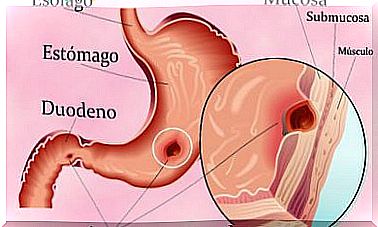Partner Abuse: What Psychological Effects It Can Bring
Partner abuse produces emotional consequences that are not always noticeable with the naked eye. However, they become an obstacle for the victim, as it leads to states of loneliness, anguish and sadness.

The psychological effects of partner abuse are not always given the importance they deserve. In fact, it is sometimes thought that the only consequences of this traumatic experience are visible blows and injuries to the body.
The truth of all is that a person going through this situation needs constant emotional support. If not, she may be engulfed in a series of negative feelings that occur as a result of the harm caused by the assailant.
The most worrying thing is that the victim does not always know how to express it and has difficulties in asking for help when they need it. In addition, he is susceptible to falling back into harmful relationships, because he gets used to thinking that he deserves it and it is his fault.
What are the psychological effects that partner abuse can bring?
Partner abuse can be physical, psychological, or both. Regardless of this, it leaves emotional consequences that can be difficult to overcome, especially when the victim cannot express or accept them.
It is very important to learn to interpret their signals, as they are not always completely forceful. On the other hand, they can lead to depressive states of care, since the person comes to threaten their integrity. What psychological effects are they?
Low self-esteem

Low self-esteem can be a trigger and consequence of partner abuse. When the person does not value himself, he often falls easily into relationships that generate emotional dependence. This makes it easier for the aggressor to further deteriorate his self-esteem.
In addition, psychological abusers focus on that weakness to attack constantly, without mercy. Therefore, the person comes to think that he is worth nothing and has the idea that only his victimizer can love him.
Anxiety and stress
After going through any episode of dating violence, the victim has constant anxiety attacks and post-traumatic stress. Much of this symptomatology is the manifestation of the denial that the person has about their situation.
On many occasions, the person who suffers is not aware of the damage caused by the aggressions of his partner. In fact, when it’s just psychological abuse, it can take a long time before you consider filing a complaint.
Loneliness

Partner abuse can cause a tendency to loneliness and isolation in those who suffer its consequences. Because the abuser tries to cut off all the victim’s communication with his family and friends, later the ability to have interpersonal relationships is affected.
Similarly, constant attacks on self-esteem and reputational damage prevent a person from feeling comfortable in a social environment. The worst thing is that loneliness aggravates the situation and makes it difficult to end it.
Guilty feeling
It is very likely that the victim, falling into a state of loneliness and low self-esteem, ends up blaming herself for what is happening to her. Furthermore, it is not at all strange that the abuser applies manipulation methods so that the person blames himself.
For example, when it comes to a case of psychological abuse, a phenomenon called “emotional blackmail” is common, in which the perpetrator uses tricks to make the other feel that their behavior is the trigger for the aggression.
Depression

One of the worst psychological consequences of partner abuse is the constant episodes of depression and loss of hope. Due to low self-esteem and the inability to have healthy relationships, the victim falls into depressive states.
Timely attention to this problem is very important, as it can have fatal consequences. The abused person feels in a dead end and makes decisions that threaten their health or life.
Suicidal ideation
Continuing with the previous problem, it is worth mentioning in a special way the suicidal ideation of some victims. Feeling the lack of love for the person they loved, being involved in pain and not finding a “cure” are the reasons for wanting to stop living.
When there is no timely detection and attention to these thoughts, the outcome can be death. Therefore, before any warning sign, it is essential to seek professional psychological attention.
Unconscionable aggressiveness
The way to externalize the pain can be through feelings such as anger or aggressiveness towards others. Consequently, the person feels that everyone is against him or that he cannot establish ties with anyone.
To sum up, partner abuse has serious consequences on the emotional health of the victim. His lack of attention prevents an optimal recovery to lead a normal life after overcoming the episode of violence. Therefore, it is essential to receive family support and professional care.









